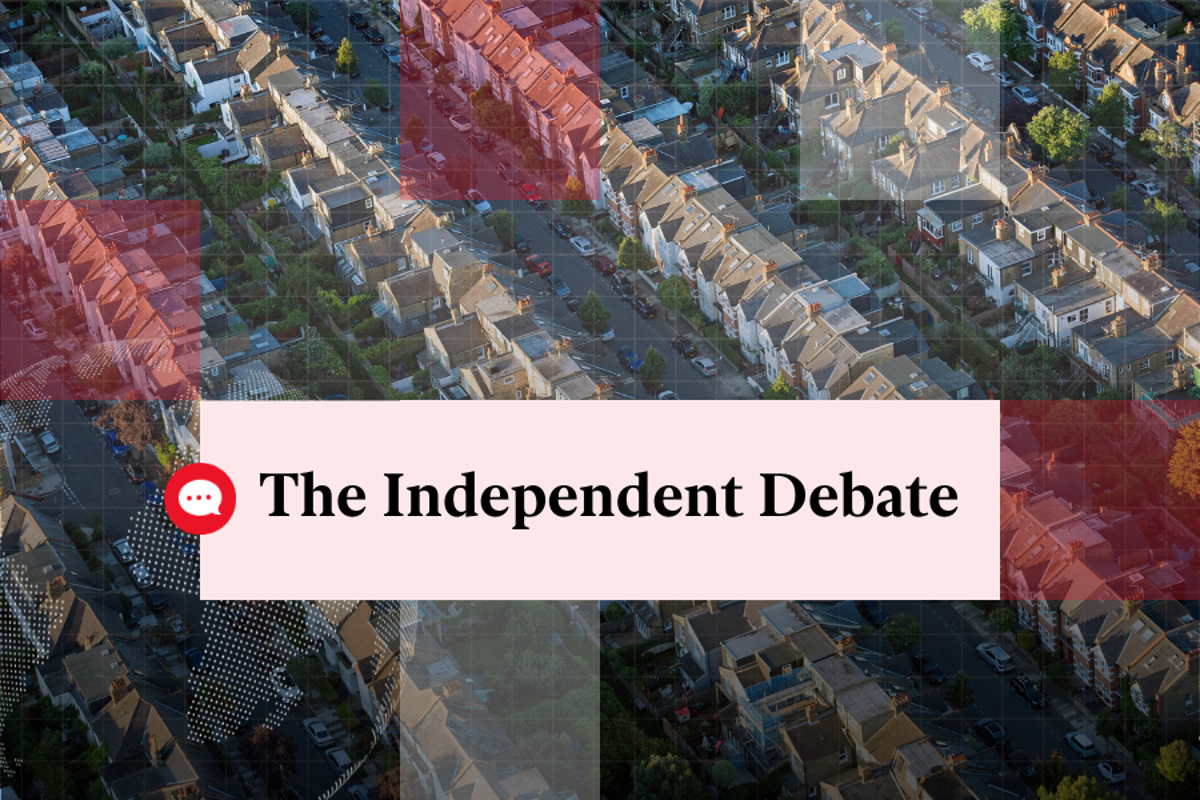Voices: ‘Stamp duty makes downsizing impossible’: Readers split on how to tackle the UK’s housing divide

The debate over how to fix the UK’s housing crisis has intensified in recent years, with growing concerns about affordability, supply shortages, and the uneven distribution of housing wealth between generations. Today, homeowners aged 60 and over hold more than half of the UK’s £2.89 trillion in owner-occupied property wealth. In contrast, under-35s own just 6 per cent, according to estimates from property firm Savills. Many argue that a combination of factors, including low social housing supply, people buying homes just to sell them for a profit, and tax incentives skewed in favour of landlords and older homeowners, has fuelled spiralling house prices and insecurity for younger people. When we asked for your views on whether older homeowners should be encouraged to downsize, 55 per cent said yes, stronger incentives are needed. Meanwhile, 45 per cent felt it was their right to stay put. This split was reflected in the responses we received from readers. Some, drawing on their personal experiences, highlighted that many older people would downsize if the costs, such as stamp duty, weren’t so prohibitive, and if suitable retirement properties existed. Others felt that downsizing should be incentivised through tax breaks, easier moving processes, or government-backed investment bonds. There were also calls for a massive expansion of public housing, tighter regulation on multi-property ownership, and aggressive taxation of landlords and vacant properties to rebalance the market. However, many older homeowners also said they are reluctant to move while their adult children remain financially insecure or in precarious rental situations. Others were sceptical of retirement flats, citing the quality of the accommodation and high service charges. Here’s what you had to say: This situation – older people who want to downsize – is a very small proportion of the problem. The unspoken root of the whole thing is too many people in the country and too many on the planet. Progressive land tax. Aggressive capital gains tax with exemptions for the primary family home. Rent capped to inflation. More public housing. The key is making housing more affordable. If people can afford a mortgage, the houses will be built. That’s the supply side of the equation. To reduce the cost of housing, you have to make it less profitable for (literal) rent seekers. What we really need is a return to there being plenty of low-cost rented social housing that is well built and properly managed. Not everybody can afford to buy, or indeed wants the responsibility of home ownership. I worked in social housing for 40 years and have seen the negative changes brought on by the Right to Buy, the lack of finance for new housing and improvements, and the steep decline in housing management. In my early days, social housing was lived in by tradesmen and lower management workers. Nowadays, social housing seems occupied only by the very poor, the unemployed, those on benefits, and the criminal classes. The housing associations have changed from caring local philanthropic organisations into mega-corporations with directors and chief execs on fat-cat salaries and flashy company cars. Estates have been allowed to deteriorate and become no-go areas overrun by gangs. A lot of older people don’t actually want to stay in their big houses with high maintenance costs, bills, and unoccupied bedrooms, but fear a loss of their big inheritance investment and can’t face the energy needed to downsize – and there is no incentive to do so. Make it very attractive to downsize into an appropriate retirement location to help remove the stigma that can be associated with "going into care". Allow the moving costs to be associated with the sale of the property and offer a tax-free investment tool in a government bond, which can be passed on without inheritance tax. CamberSands As an older householder, the main issue with downsizing is stamp duty. To downsize would cost me tens of thousands in stamp duty, so I sit where I am in a large family house. The housing crisis will not be solved until the state builds millions of houses for rent, with no option to buy. Aggressive taxation on multi-property owners, especially overseas owners. Exponential taxation on the ownership of additional properties after three total. Landlord is not a jobit’s in the name, lording it over land. As a homeowner, I bought my house at the low, low price of £187k a year ago. That’s insane; it was built 70 years ago. The value is inflated by the lack of affordable housing. This creates a positive feedback loop of increasing prices due to low supply, further lowering supply. There are more houses in the UK that have been unoccupied for six months or more than there are individual homeless people. We don’t need to build more houses; we need to wake the f up on what the actual monetary value of a house is. One of the reasons I am not inclined to move out of the family home is that my two twenty-something kids are not yet established in their own. They have precarious employment and even more precarious rentals – my son was recently given six weeks to find a new place in London because the landlord decided to sell. A similar thing happened to my daughter and her boyfriend in Bristol. So I feel I have to be their safety net. As for so-called retirement flats, from what I have seen they are generally tiny, gardenless, leasehold, and often have eye-watering service charges which next of kin are liable for after your death. Why would you give up a nice house for that? My wife and I own a five-bedroom house with a sizeable garden. Kids and other guests stay over quite often, but mainly it’s just the two of us. We’re 70-ish, and one day it will be too much for us. Plus, we’d like some released equity to fund travel or carers! Today, I read that the council’s delegated officers had rejected plans for 29 retirement flats as they were “too bulky”. Basically, some functionary subjectively didn’t like the design enough. Such properties are like gold dust near us. They just don’t exist. Right, I need to mow the lawn. To truly understand what the divide is, you have to show what the cost of that holding was to each person. You will find, even adjusted for inflation, that the investment value of the over-60s is probably half of that of the under-35s. We need house prices to remain stagnant for the next 20 years to make the investment of younger people equivalent. Families without property wealth to be inherited will be stuck in rental homes forever, otherwise. Slightly Tipsy Max Some of the comments have been edited for this article for brevity and clarity. You can read the full discussion in the comments section of the original article here. The conversation isn’t over. To join in, all you need to do is register your details, then you can take part in the discussion. You can also sign up by clicking ‘log in’ on the top right-hand corner of the screen. Make sure you adhere to our community guidelines, which can be found here. For a full guide on how to comment click here.



















